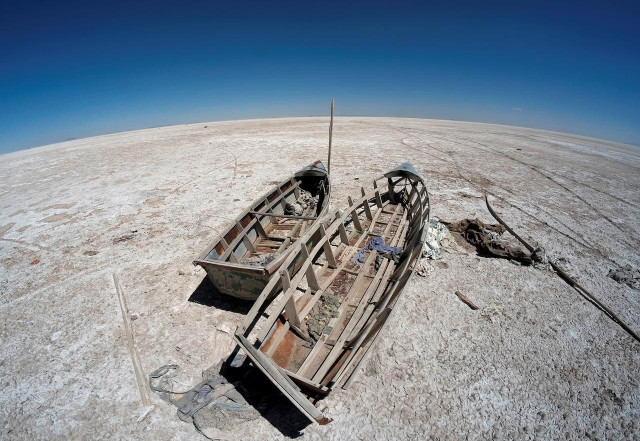Crucial sectors ignored in development schemes
Over 2,000 projects completed without framework for alignment with global goals

Representational image. PHOTO: REUTERS
However, District Government Deputy Director for Development Muhammad Naveed contended that whenever funds were allocated and released to the district governments, they were directed towards the Sustainable Development Goals (SDG).
Climate change triggers widespread migration in Pakistan
The SDGs are a universal set of 17 goals, 119 targets and 241 indicators that UN member states are expected to adopt nationally and locally in their development agendas and socio-economic policies during the period 2015-30.
Parliament also declared them as national development goals on February 19, 2016, through a resolution, while the four provincial governments established SDG support units in their planning and development departments.
In compliance with the UN agenda and provincial government’s manifesto, district steering groups and SDG focal persons were to be appointed, but this has not been done despite the passage of four years.
Moreover, a local government summit held regarding strengthening of SDGs on March 9, 2017 had set an agenda to localise and allocate maximum budget for SDG schemes and issued a declaration about preparing a mechanism for future prioritisation in this regard in annual budget documents.
The year the world woke up to the climate emergency
Pakistan had also assured the UN of working on the 17 goals pertaining to poverty, hunger, health, education, gender equality, clean water, economic growth, industry and infrastructure, inequality, sustainability, responsible consumption, climate action, life under water, life on land, peace, justice and inclusive partnership.
During the period, the district government completed 796 road schemes, 357 of health, 595 of education, 68 of water, 182 of drainage, 21 of sports and 71 of parks.
The Punjab government has not yet started working on finalising the process, mechanism and modalities for alignment of public sector investment with SDGs, determining expenditures related to the goals and initiating an online dashboard for tracking the investments at the district level.
Members of national and provincial assemblies, as well as the district governments, spent Rs92.18 billion on the development projects but, due to the failure to frame the mechanism, the goals of climate change, gender equality, clean energy and life under water and on land were neglected.
The metropolitan corporation and district council also ignored the SDG agenda during the preparation of their annual budgets for the last three and a half years.
Climate change - a very real problem
“Although the Punjab government has not yet framed any regulatory mechanism to give more attention to the UN goals, the district government will organise awareness workshops and gatherings of members of parliaments, civil society and local bodies to extend the scope of work on the Sustainable Development Goals,” said the district government official.
Naveed maintained that the prime minister and Punjab chief minister had also declared the goals as their top priority and renamed the ongoing SDG projects as PM’s Social Action Development Programme.
“The district administration and members of national and provincial assemblies are on the same page regarding the implementation of Sustainable Development Goals set by the United Nations,” he highlighted.
Published in The Express Tribune, May 16th, 2020.



















COMMENTS
Comments are moderated and generally will be posted if they are on-topic and not abusive.
For more information, please see our Comments FAQ